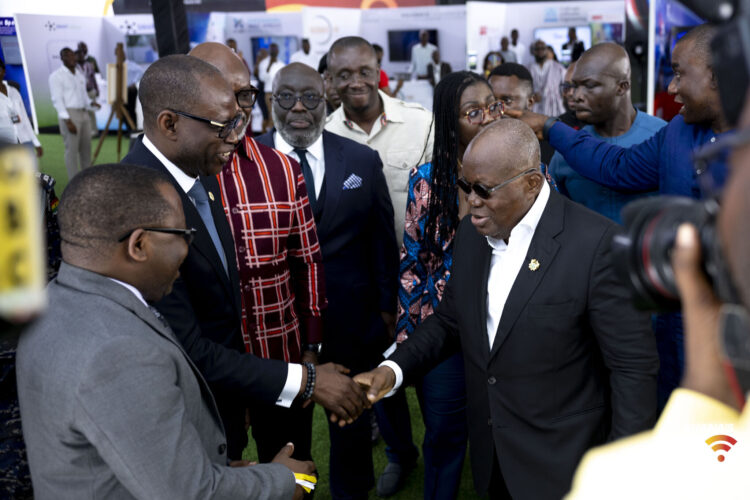Ghana has officially launched its high-speed 5G internet service, marking a significant milestone in the country’s digital transformation journey.
5G technology, known as the fifth generation of wireless technology, promises to deliver faster internet speeds, enhanced upload and download capabilities, and more reliable connections compared to its predecessors—3G, 4G, and 4G LTE. While operating on similar radio frequencies, 5G significantly improves the mobile internet experience.
The government awarded a 5G license to Next Gen Infraco (NGIC), a new shared infrastructure company co-promoted by the government and seven other partners, including Ascend Digital, K-NET, Radisys, Nokia, Tech Mahindra, AT Ghana, and Telecel Ghana. This initiative aims to provide affordable 5G mobile broadband services across Ghana.
In his keynote address, President Akufo-Addo highlighted the essential role of digital technology in contemporary society. He stated, “Ghana is at a crucial point where digital technology is no longer optional but essential.” He elaborated on the country’s digital transformation agenda, which focuses on creating an inclusive digital ecosystem vital for job creation, economic diversification, and global competitiveness.
President Akufo-Addo emphasized that “5G technology will have a transformative impact on our national landscape,” enabling innovations in sectors such as health, education, agriculture, and security. He envisions a future where remote healthcare consultations and expanded access to educational resources are available even in the most remote areas of the country.
“5G will be a catalyst for industrial growth,” he noted, empowering micro, small, and medium-sized enterprises (MSMEs) with faster and more reliable internet access. This will allow these businesses to reach new markets, streamline logistics, and enhance operations.
In agriculture, 5G technology will facilitate real-time data collection and machine-to-machine communication, promoting productivity and sustainability through innovations like precision farming and smart irrigation. The President reiterated his administration’s commitment to industrialization, asserting that 5G-enabled automation and augmented reality will accelerate Ghana’s industrial progress, making it an attractive hub for technological investment.
He also highlighted the potential for seamless access to public services and improved emergency response capabilities through 5G technology. “We aim to build a responsive government that evolves with the digital age,” he stated, underscoring the importance of existing initiatives such as the digitized national ID system and mobile financial services.
In her remarks, the Minister for Communications and Digitalisation, Mrs. Ursula Owusu-Ekuful, stressed the transformative power of 5G across various sectors, including agriculture, health, transportation, and manufacturing. She emphasized that technologies such as the Internet of Things (IoT) and artificial intelligence are no longer futuristic concepts but imminent realities poised to reshape daily life and work.
Mrs. Owusu-Ekuful announced initiatives to enhance digital literacy and skills development, particularly for the youth, to ensure they can leverage the opportunities presented by 5G. “We are constructing a digital youth hub at the University of Ghana, which will serve as a prime center for developing Ghana’s specific 5G use cases,” she added.
Despite the promising advancements, the Minister acknowledged challenges related to cybersecurity, data privacy, and equitable access. She affirmed that the ministry is proactively addressing these issues by implementing robust data protection protocols aligned with international standards, including end-to-end encryption and advanced cybersecurity measures.
As Ghana embarks on this new chapter with 5G technology, the government remains committed to bridging the digital divide and ensuring that all citizens can benefit from the opportunities that this advanced technology offers.
















